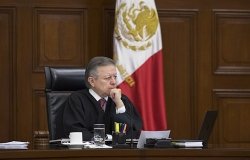Gallup: How Egyptian Opinion Shifted
A few weeks before massive protests and a government decree ended Egyptian President Mohamed Morsi's presidency, 29% of Egyptians expressed confidence in their national government -- the lowest level Gallup has measured since Egypt's revolution began in 2011.
By Mohamed Younis
A few weeks before massive protests and a government decree ended Egyptian President Mohamed Morsi's presidency, 29% of Egyptians expressed confidence in their national government -- the lowest level Gallup has measured since Egypt's revolution began in 2011.
The majority of Egyptians (57%) still had confidence in the national government around the time of Morsi's controversial decree in November 2012, which many analysts see as the beginning of his decline in popularity. The decree, which Morsi later rescinded under intense political pressure, expanded his powers and stripped the judiciary of its power to challenge his decisions. Mirroring their crumbling confidence in government, in June 2013, many Egyptians (69%) also disapproved of the job performance of the country's leadership -- a dramatic decline from the 63% approval rating in November 2012.
While Morsi attempted to have a reconciliation dialogue with opposition figures, many complained that he and particularly his political supporters were not genuine. In fact, Morsi's Freedom and Justice Party (FJP) is even less popular than the former president. Nineteen percent of Egyptians in June said they supported the FJP, a sharp decline from early 2012 when 67% of Egyptians expressed support.
Losing Faith in the Mechanisms of Democracy
While the polarization of Egypt's political leadership has been evident in the past several months, Gallup data highlight that Egyptian disappointment runs deeper than Morsi and his party. For the first time since 2009, the majority of Egyptians (60%) say they do not have confidence in the honesty of elections in their country. This comes after Egypt had reached one of the highest rates (89%) of confidence in the electoral process when compared with other countries globally.
In fact, it seems much of the hope generated after Mubarak's ouster for a more transparent future in the electoral process has been lost. A majority of Egyptians (56%) in June said that "honesty of elections" had declined in their country since former President Hosni Mubarak's resignation in 2011.
Implications
As the world closely monitors what is next for Egypt and its interim government, Gallup data highlight that Morsi and his government and political party have all lost significant credibility since late 2012. Thus, the June protests that eventually ousted Morsi represented a convergence of different and often competing political forces within the country.
Yet more troubling than partisan politics is the apparent loss of confidence among many Egyptians in the electoral process itself -- particularly if new elections take place. It should be noted that Egyptians have gone to the ballot box a handful of times since Mubarak's resignation, but with decreasing enthusiasm. Turnout for the constitutional referendum was 33%, much lower than voter turnout in 2012's parliamentary and presidential elections.
Despite growing more accustomed to political instability and economic hardship in the past-Mubarak period, other Gallup data highlight that fewer Egyptians now believe life will get better because of his ouster. The greatest risk for the country's transition will be the resurgence of the legal and political shortcomings of the Mubarak era in the currently polarized environment. This coupled with a decline in confidence in the transparency of democratic mechanisms, such as the ballot box, could prove a setback for the country's attempts to transition to democratic rule.
Related Program

The Islamists
Learn more about Hamas and how it relates to similarly aligned organizations throughout the region. Read more









